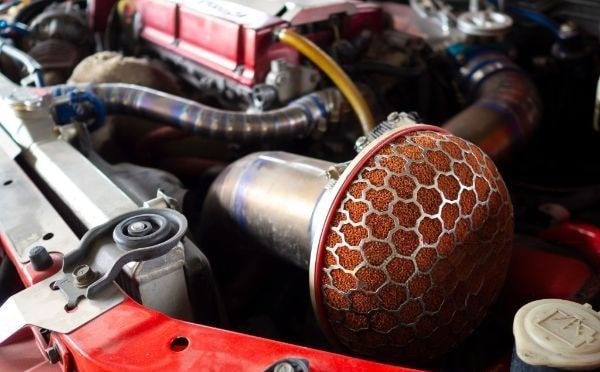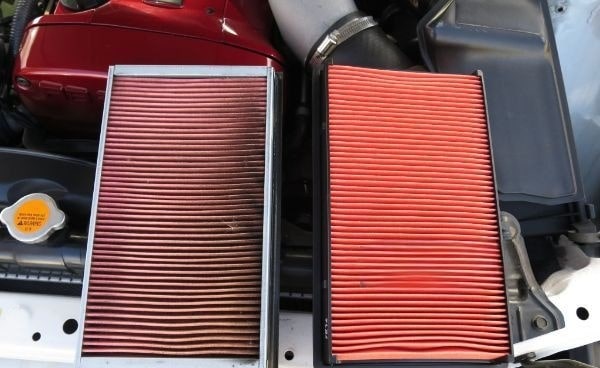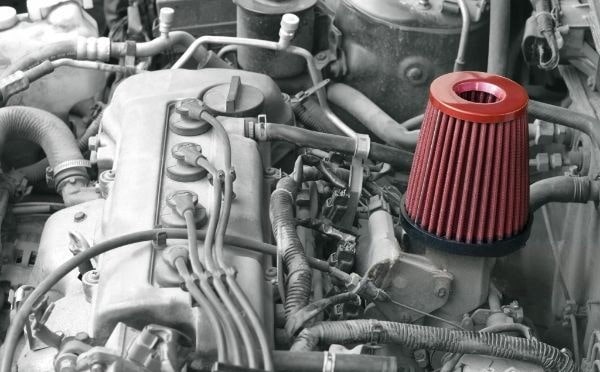Can I put a sports filter on my car? Discover the pros, cons, installation tips, and whether it's worth it. Learn how a sports air filter can impact performance.
Table of Contents
What Is a Sports Filter?
A sports air filter is a high-performance replacement for your car’s standard air filter. It’s designed to allow a higher volume of air into the engine, which can improve combustion and potentially increase horsepower and acceleration.
Standard air filters prioritize filtration over airflow, while sports filters strike a balance between the two. These filters are often made from cotton gauze, foam, or other reusable materials, and are generally more durable.

Can I Put a Sports Filter on My Car?
Yes, you absolutely can. Most vehicles can accept a sports air filter with minor or no modifications. However, compatibility depends on the make, model, and year of your vehicle. Before purchasing, it’s important to ensure the filter is designed to fit your specific engine setup.
You can browse compatible sports air filters here.
Benefits of Installing a Sports Air Filter
Improved Engine Breathing
A sports air filter improves airflow, helping your engine breathe more freely and efficiently.
Slight Boost in Horsepower
Although not massive, some cars may experience a horsepower gain of 3–5 HP after installing a performance filter.
Reusable and Washable
Unlike disposable paper filters, most sports filters are washable and reusable, saving money in the long run.
Potential Fuel Efficiency Gains
Better airflow can lead to more efficient combustion, which in some cases improves fuel economy.
Possible Drawbacks to Consider
More Frequent Maintenance
Sports filters require regular cleaning and oiling (if applicable) to maintain performance.
Possible Engine Contamination
If not installed or maintained properly, they may allow more dirt into the engine than standard filters.
Increased Engine Noise
Some drivers love the sporty sound; others find it too loud or annoying.
Types of Sports Filters Available
1. Panel Filters
Drop-in replacements that fit your stock airbox.
2. Cone Filters
More aggressive and often used in custom intake setups.
3. Cold Air Intakes (CAI)
Extend the intake path to draw cooler air from outside the engine bay.
Each type comes with its pros and cons, depending on your driving habits and performance goals.

Installation Process: DIY or Mechanic?
Most panel-type sports filters are plug-and-play and can be installed at home in under 15 minutes. Cone filters or full cold air intake systems may require tools and mechanical skill.
External Resource
Here’s a step-by-step video tutorial on installing a cold air intake

Do Sports Filters Really Improve Performance?
The gains are modest but real. You won’t turn your sedan into a race car, but you might notice:
-
Smoother throttle response
-
Slightly better acceleration
-
Enhanced engine sound
According to Auto Express , the difference is more noticeable on turbocharged or performance-tuned engines.
Legal and Warranty Considerations
Installing a sports filter typically won’t void your car’s warranty unless the filter causes damage. However:
-
Always choose a filter that complies with emissions laws in your region (e.g., CARB compliance in California).
-
Keep documentation in case your dealer has questions.
Contact your car manufacturer or dealer before installation.
Where to Buy Sports Air Filters
You can find a wide range of sports air filters online and at auto parts stores. It’s best to shop from reputable sources that offer vehicle compatibility tools.
Recommended Retailer:
Check out SparesFlex’s sports air filter collection for high-quality and vehicle-specific options.
Final Thoughts
So, can I put a sports filter on my car? Absolutely. It’s a relatively low-cost modification that can slightly improve performance, sound, and longevity when properly maintained.
It’s essential to do your research, choose the right type, and maintain it regularly. If you’re looking to upgrade your driving experience without diving into major engine mods, a sports air filter is a great first step.

